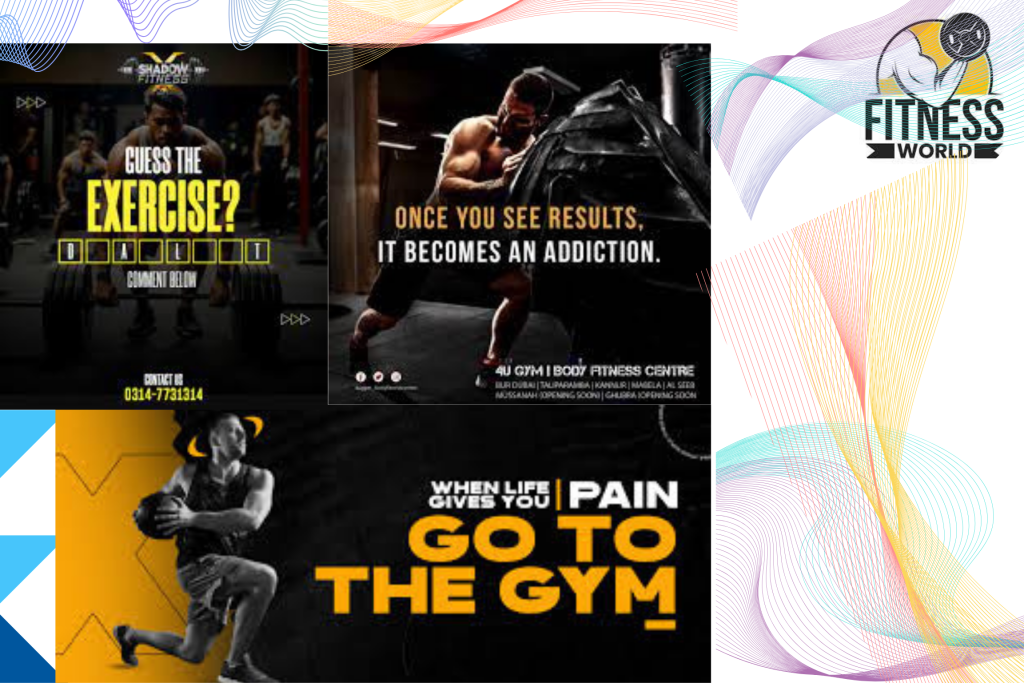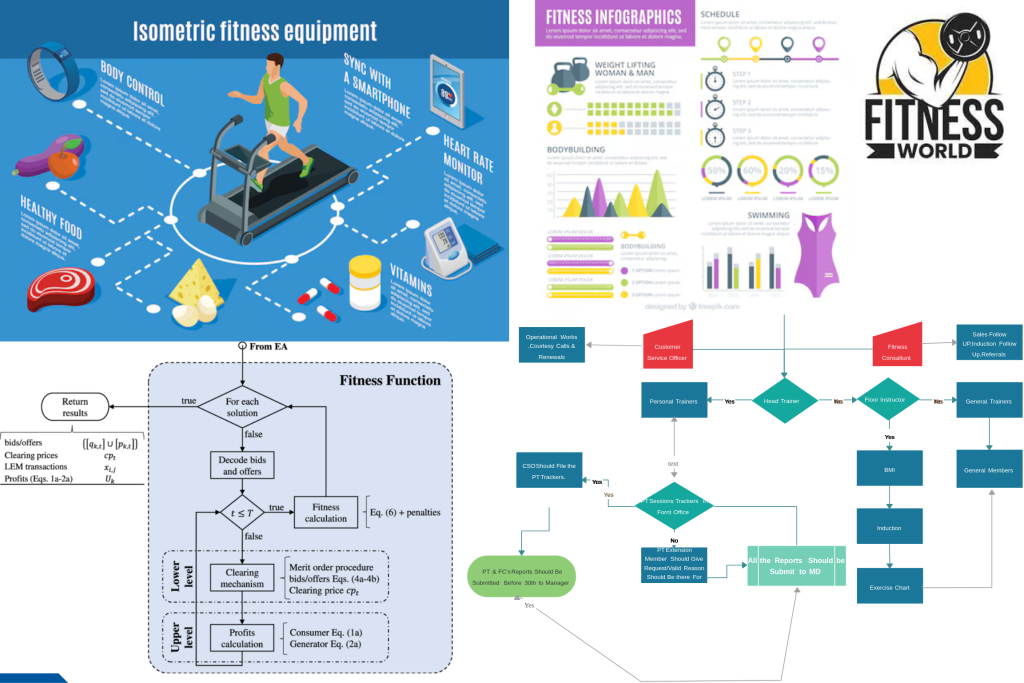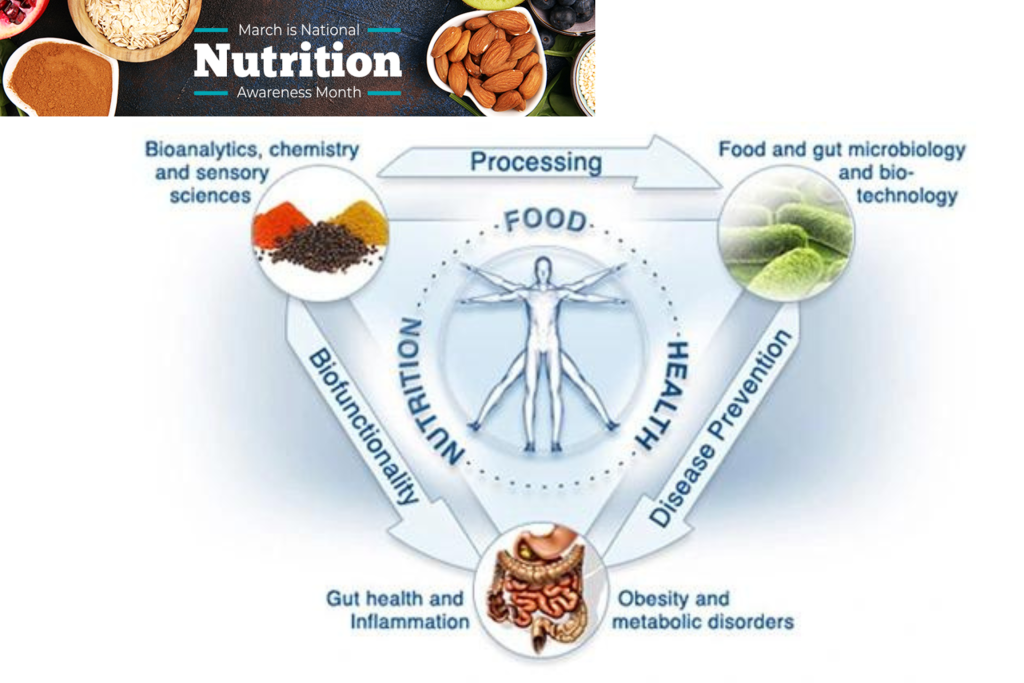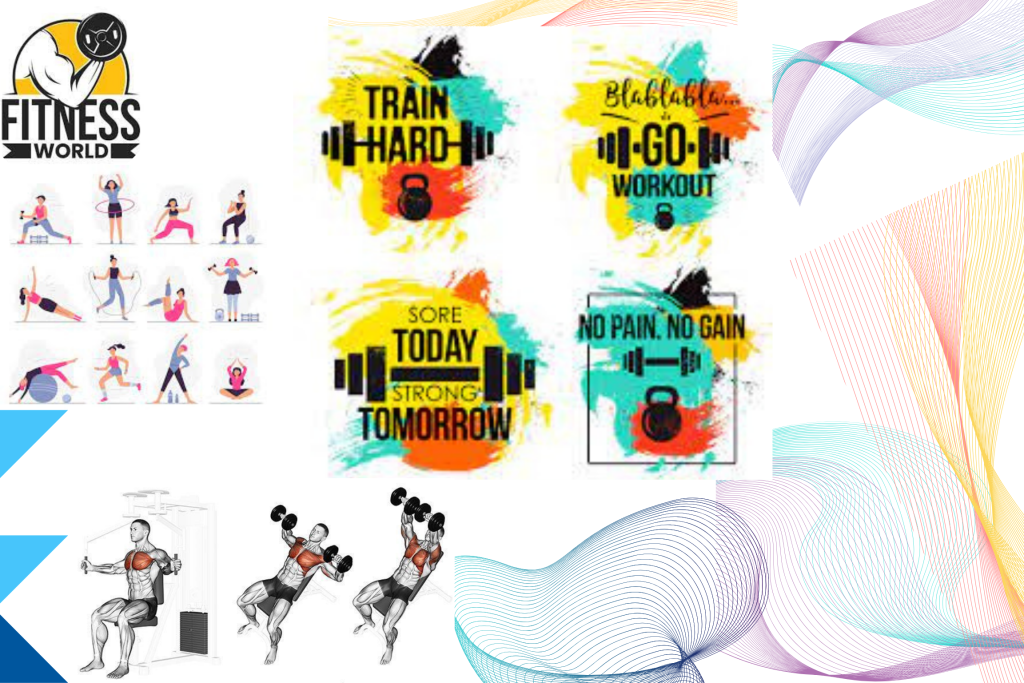
In today’s fast-paced world, the importance of fitness cannot be overstated. The “fitness world” is a dynamic and expansive domain that encompasses various activities, routines, and lifestyles aimed at improving physical health, mental well-being, and overall quality of life. Whether you’re a seasoned athlete or a fitness novice, understanding the myriad aspects of the fitness world can help you embark on a successful journey toward a healthier you.
The Importance of Fitness world
Fitness is not just about looking good; it’s about feeling good and living a life free from preventable diseases and conditions. Regular physical activity has been proven to reduce the risk of chronic diseases such as heart disease, diabetes, and obesity. It also plays a crucial role in enhancing mental health by reducing symptoms of depression and anxiety, improving mood, and boosting self-esteem.

Components of Fitness
The fitness world can be broadly divided into several key components, each focusing on different aspects of
Cardiovascular Fitness: This involves exercises that increase your heart rate and improve the efficiency of your cardiovascular system. Activities like running, cycling, swimming, and brisk walking are excellent for enhancing cardiovascular fitness.
Strength: Strength training exercises, such as weight lifting, resistance band exercises, and body-weight workouts like push-ups and squats, help increase muscle mass, improve bone density, and boost metabolism.
Flexibility and Mobility: Flexibility exercises, such as stretching and yoga, improve the range of motion in your joints and reduce the risk of injuries. Mobility exercises help maintain joint health and ensure that you can move freely and comfortably.
Balance and Stability: These exercises, often incorporated in routines like Pilates and functional fitness training, help improve coordination and prevent falls, especially as you age.
Starting Your Fitness Journey
Here are some stage to get started your fitness journey
Set target : Define in your fitness routine what you want to achieve .Whether it’s losing weight, building muscle, improving endurance, or enhancing overall health, having clear goals will keep you motivated.
Create a Balanced Routine: Incorporate various types of exercises to ensure a well-rounded fitness program.
Start Slow: If you’re new to fitness, start with low-intensity exercises and gradually increase the intensity and duration as your fitness level improves.
Stay Consistent: Consistency is key to achieving fitness goals. Rest and recover when needed to avoid burnout and overtraining.

Exploring Different Fitness Activities
The fitness world offers a wide range of activities to suit different preferences and fitness levels. Here are some popular options:
Gym Workouts: Gyms provide a variety of equipment and classes that cater to all fitness levels. From weightlifting and cardio machines to group fitness classes like spin, Zumba, and HIIT, gyms offer a comprehensive fitness experience.
Outdoor Activities: Exercising outdoors can be invigorating and refreshing. Running, hiking, cycling, and outdoor boot camps are great ways to stay fit while enjoying nature.
Home Workouts: With the rise of online fitness programs and virtual classes, working out at home has become increasingly popular. Body-weight exercises, resistance band workouts, and online fitness challenges are effective ways to stay fit without leaving your house.
Sports and Recreational Activities: Engaging in sports like basketball, tennis, soccer, and swimming not only improves fitness but also adds a fun and social element to your routine.
Mind-Body Exercises: Practices like yoga, Pilates, and tai chi focus on the connection between mind and body, promoting relaxation, flexibility, and mental clarity.

Nutrition and Fitness
A balanced diet provides the energy and nutrients needed for optimal performance and recovery. Here are some nutrition tips to complement your fitness routine:
Hydration: Staying hydrated is essential for maintaining energy levels and preventing dehydration during workouts. Aim to drink at least 8 glasses of water a day, and more if you’re engaging in intense exercise.
Balanced Diet: Consume a diet rich in whole foods, including lean proteins, complex carbohydrates, healthy fats, and plenty of fruits and vegetables. Avoid processed foods and sugary snacks.
Pre- and Post-Workout Nutrition: Eating the right foods before and after workouts can enhance performance and recovery. A combination of carbohydrates and protein is ideal for pre-workout energy and post-workout muscle repair.
Supplements: Depending on your fitness goals, you may consider supplements like protein powder, creatine, and branched-chain amino acids (BCAAs). Consult with a healthcare professional before adding supplements to your routine.
Overcoming Common Fitness Challenges
Every fitness journey comes with its own set of challenges. Here are some common obstacles and strategies to overcome them:
Lack of Motivation: Set realistic goals, track your progress, and celebrate small achievements. Joining a fitness community or finding a workout buddy can also keep you motivated.
Time Constraints: Prioritize your workouts by scheduling them into your daily routine. Even short, high-intensity workouts can be effective if you’re short on time.
Plateaus: If you hit a plateau, try changing your workout routine to challenge your body in new ways. Increase the intensity, try different exercises, or add variety to your workouts.
Injuries: Prevent injuries by warming up before workouts, using proper form, and listening to your body. If you do get injured, seek medical advice and allow yourself adequate time to heal.
The Role of Technology in Fitness
Technology has revolutionized the fitness world, providing tools and resources to enhance your fitness journey. Here are some ways technology can support your fitness goals:
Fitness Apps: Apps like MyFitnessPal, Strava, and Fitbit offer features like workout tracking, nutrition logging, and progress monitoring, making it easier to stay on track.
Wearable Devices: Fitness trackers and smartwatches provide real-time data on your physical activity, heart rate, sleep patterns, and more, helping you make informed decisions about your fitness routine.
Online Workouts: Platforms like YouTube, Peloton, and Beachbody On Demand offer a wide range of virtual workout classes that you can do from the comfort of your home.
Social Media: Joining online fitness communities and following fitness influencers can provide inspiration, tips, and support throughout your fitness journey.

The Psychological Benefits of Fitness
Beyond physical health, regular exercise offers numerous psychological benefits. Engaging in physical activity can improve mood, reduce stress, boost self-esteem, and enhance cognitive function. It also promotes better sleep, increases energy levels, and can be an effective way to combat anxiety and depression.
The fitness world is vast and varied, offering something for everyone. By exploring different types of exercises, maintaining a balanced diet, and leveraging technology, you can create a fitness routine that suits your lifestyle and helps you achieve your goals. Remember, the journey to fitness is personal and unique—embrace it with dedication, consistency, and a positive mindset. With the right approach, you’ll not only transform your body but also enhance your overall well-being, paving the way for a healthier, happier life.



